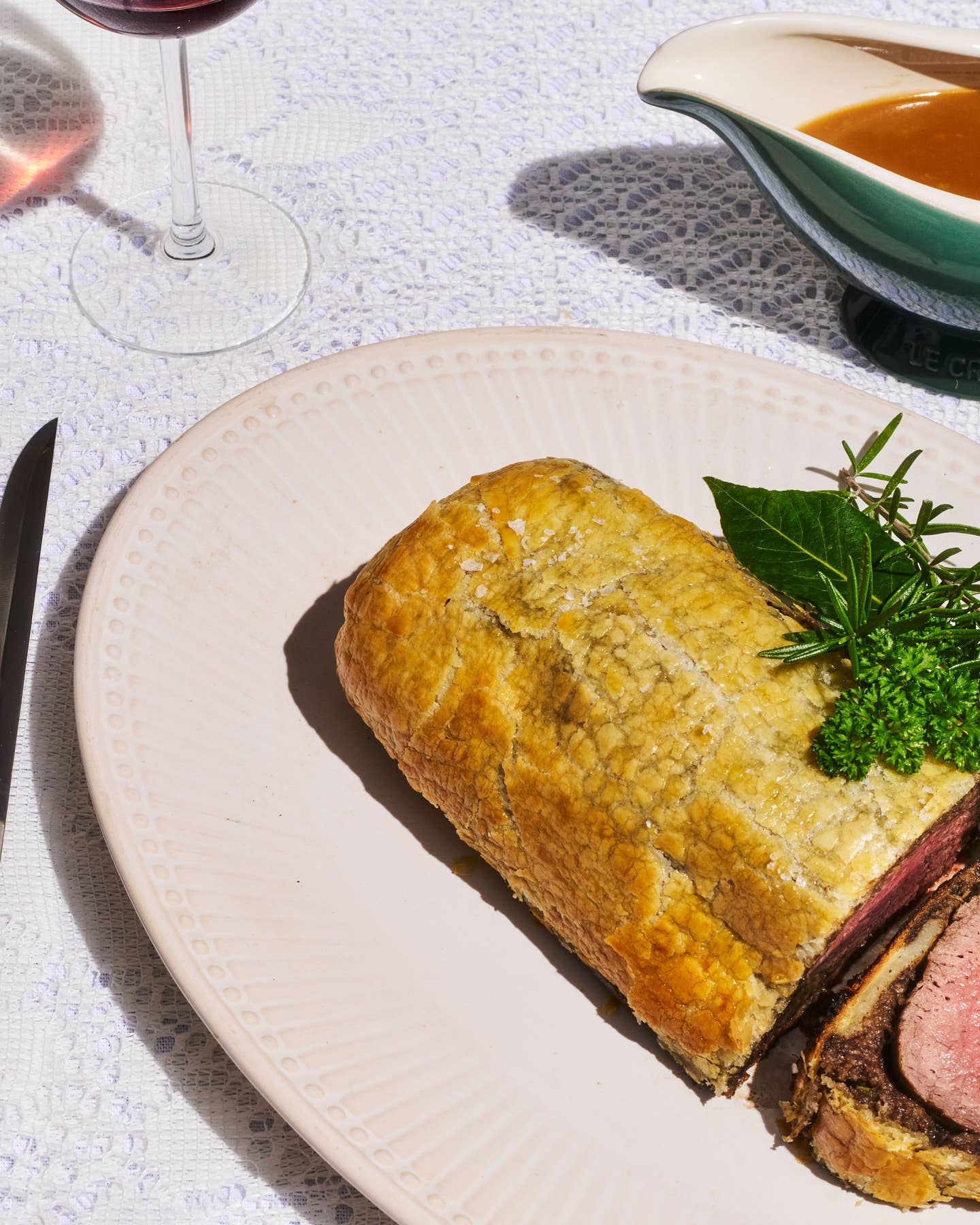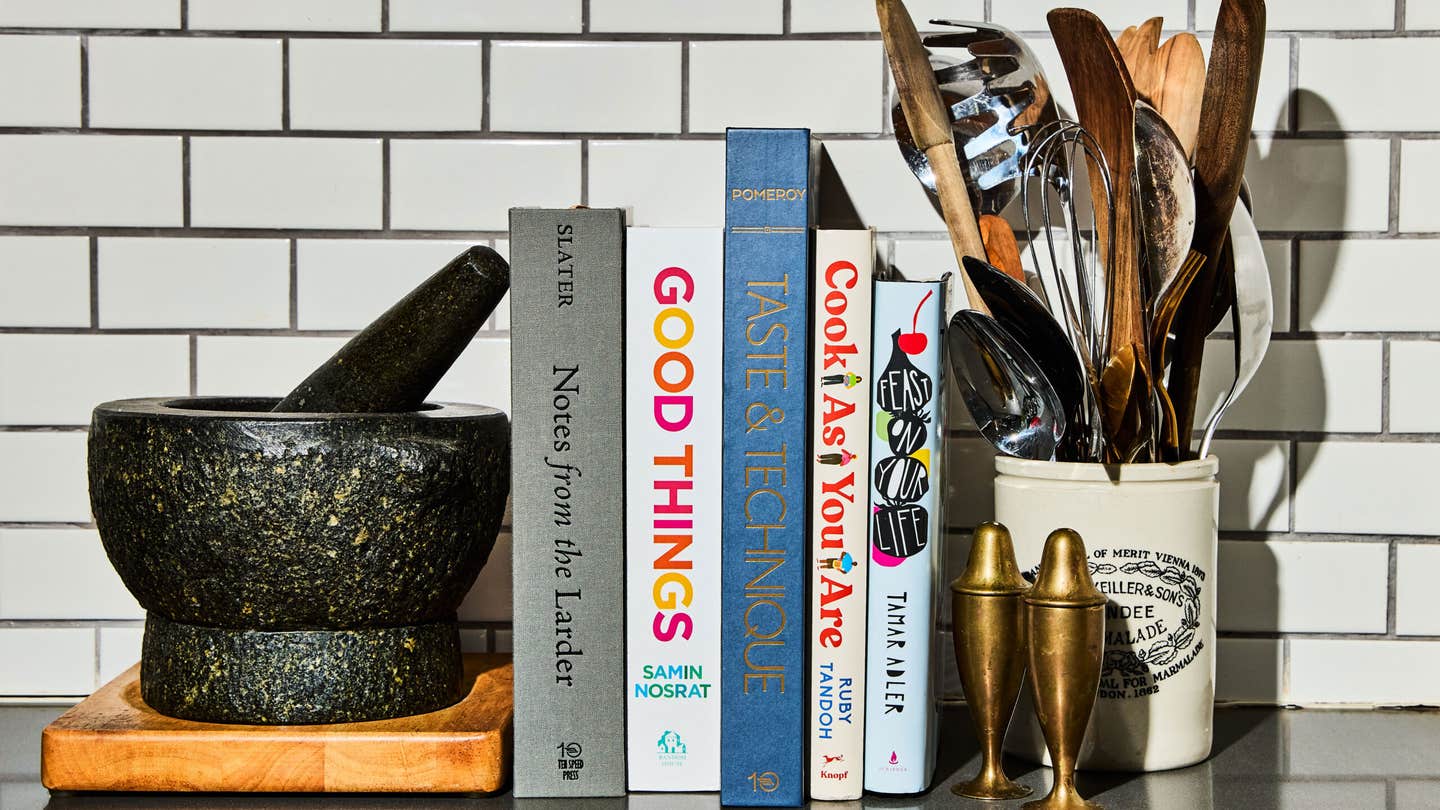The Russian Cookbook That Isn’t Really a Russian Cookbook At All
Kachka chef and author Bonnie Frumkin Morales on revitalizing the foods of Russia and the former Soviet Union

Bonnie Frumkin Morales doesn't pretend her book, Kachka: A Return to Russian Cooking, co-authored with Deena Prichep, is an encyclopedic or definitive guide to Russian cuisine. In fact, it's not a Russian cookbook at all. In the introduction, in all caps, she writes: "THIS IS NOT A RUSSIAN COOKBOOK." So what is it?
The seed of the cookbook and the eponymous Portland restaurant begins how so many first-generation American tales do: As a kid, Morales desperately wanted to be “American”—she was embarrassed by her mother’s Soviet-era cooking and all the pickles fermenting in the basement. Then as a culinary student, she decided Russian food was just broken, but that it could be fixed with a little French technique.

Ultimately though, with the help of her boyfriend-now-husband—and the questions he would ask her mother about what he was eating—Morales came to see that the food of her family was vivacious, important, and totally delicious. Though Morales has been eating her mother's schavel, a cold green soup, for forever, she didn't realized she'd never had the real thing. Her mother could never find sorrel in her 1980's Chicago suburb, so she made do with a combination of spinach and lemon juice. Her mother still makes kotleti, a meat patty, every single week; it's probably the result of Stalin's food commissar impelling the dish to cult status after he became obsessed with hamburgers on an American scouting mission.
RECOMMENDED: How to Throw a Proper Russian Drinking Party
Morales's recipes for both these staples can be found in Kachka, and while most would consider them Russian dishes, remember: This is not a Russian cookbook. Morales is actually Belarusian, though her family never lived in Belarus. (It's a good long story best told by Morales in the introduction to her book.) The food she cooks could more accurately be called "foods of the former Union of Soviet Socialist Republics," but that's a mouthful—and even so, she's cooking her iterations of that food, shaped by her Russian (insert big asterisk here) and American backgrounds, her experience as a chef and home cook, and as a champion for preserving and renewing the Russian way of eating.
Though the cookbook has so many cookable dishes, they’re just one aspect of the book and any Russian feast. You’ve got to consider what to drink, how to drink it, how to cheers when you’re drinking, and the rounds of food you’ll eat in the meantime. Also, you’ll need to learn how to fit all those dishes on the table, and what music should accompany. (Morales teaches you all of it.) It’s at these convivial, raucous nights that Morales learned to love her family’s food. And it’s what she hopes her diners experience at her Portland restaurant. As she writes in the book: “We struck a chord because Kachka is the story of my family, but also the experience of millions—told through food that is intoxicating, rich, and varied.”
We chatted with Morales to learn more about prying recipes from her family, creative liberties, and what’s next for Russian food.
What was the process of recording your family recipes like? What challenges presented themselves?
Although I almost always start with family recipes, what we serve at Kachka (and what is published in the book) are my interpretations. So the biggest challenges I face are making sure to keep the integrity of the dish in doing this. Reverence is almost a mantra for me.

Any tips for people who are trying to pry and then accurately recreate oral recipes?
If you don't have the opportunity to taste the recipe in question with the person you are getting it from, you'll never know if what you've made is a true representation. I can taste something without getting a recipe and have more accurate results than if someone gives me a recipe and I'm flying blind not knowing what it tastes like.
Another thing to remember is ingredients vary greatly both over the years and across continents. For accurate results, you need to put yourself in the shoes of the person you got the recipe from. For example, when my mom references “vanilla” that means something very different to a 1960’s Soviet than it does to an American in 2017. It would be vanillin to the Soviet and vanilla extract to the modern day American. This is just one example of hundreds, so never take any ingredient or step for granted.

Your book makes it clear that Russian cuisine is as much about what you are eating as it is about how you are eating it: with company, with vodka, with music loud, and in rounds of many, many dishes. Do you think something is lost when the dishes are eaten in another format? I'm thinking about a restaurant setting when there are just two of you and you simply can't order 25 dishes; sometimes I feel like I could miss the sparkle.
At Kachka, we do something that we lovingly call the "Ruskie Zakuski Experience" where you get a small bit of every zakuska [Russian mezze-like bites] we have on the menu. That's how we try to resolve it. But if you aren't at Kachka, the biggest thing you can do to celebrate more like a Russian is to make sure that you give toasts throughout your meal. It's kinda like Thanksgiving where you all say what you are thankful for, but with more booze and less awkward family baggage (well, Russians have family baggage too but we just keep that bottled up inside).

What does your family think of your cookbook?
I think they like it? Reference my point about keeping feelings bottled up inside. I will say there was a bit of an incident over one of the recipe headnotes that involved my mother throwing the book across the room out of anger and my aunt almost cancelling a visit to Portland.
When you were getting your restaurant up and running, you had a lot of "doubting strangers" who weren't sold on the idea of a Russian restaurant. Yet I tend to think soul food transcends cultures and cuisines; if it came from a handwritten recipe card, people will like the dish more. How do you think that you were cooking from your heritage contributed to Kachka's success?
You can have soul and still make bad decisions—I think it's more about having intention than being "soulful." Having a real grounding and understanding of what you are embarking on means you will make more informed decisions. It's not very romantic, but I think it's more accurate.
Some of your mother's recipes—her borscht, her golubtsi—appear as she makes them in your cookbook, but other recipes were tweaked by you. What aspects of traditional Russian dishes do you think of as avenues for tweaking? What parts yell at you, "oh, I have to change that"?
I often view recipe development as a design problem—I have a background in Industrial Design and find myself working in that framework when I am cooking and developing dishes. Basically, only change what needs changing based on a sort of problem identification. And then be respectful of the dish and only make changes that are appropriate to the form. But this is all highly subjective, obviously. I guess what matters is that you have a sound reasoning for why you are tweaking.
You write in the book: "Because this food, no matter how it's defined, is a soulful celebration in the face of harshness...where all you can do is seize the bounty and the moment, look around at your nearest and dearest, and raise your glass." It's a beautiful way to sum up how Russian cooking was shaped, and also reminds me of the particular political harshness of right now and that Russia is in the news…all the time. Do you see or think about this connection?
What's funny is I don't think about Russia at all, but I do think a lot about how this is particularly topical to current sentiments in America. A lot of us have severe anxiety about what's happening in our country and feel helpless. But we can take comfort in each other and the food on the table regardless of the political climate. As Americans it's easy to lump all Russians in with Putin and call it a day. Just remember that there are people in other countries lumping us all in with our president, too. That's not really fair, is it?
Russian cuisine shows off a lot of currently fashionable ingredients: cod liver, charcoal, birch water, fermented everything. What does it mean if Russian food gets trendy, besides that your kids will be the coolest ever?
First off, I need to go on a tangent rant about activated charcoal. I am seeing it being used as an ingredient in everything from soft serve to cocktails and it really needs to stop. With proper supervision it is an incredibly useful natural medicine but can do some serious damage to your stomach if used irresponsibly. Back to the question at hand, I hope that Russian food gets a serious seat at the grownup table. It deserves to be up there with Italian, French, and Japanese food. If it takes some trendy ingredients to get there, I am all for it. I just don't want this food to disappear.
Editor's note: This interview has been edited and condensed for clarity.
Keep Reading
Continue to Next Story











